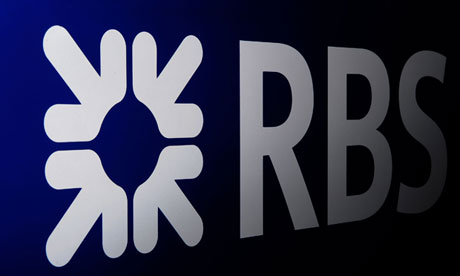
The government moved a step closer to selling off its stakes in the bailed-out banks with the appointment of JP Morgan Cazenoze to advise on the possible sell-off of shares in Lloyds Banking Group and Royal Bank of Scotland.
The appointment of JP Morgan Cazenove was made by UK Financial Investments, which looks after the stakes in the bailed-out banks. It is part of a process to line up banks ready to stand behind any sale of the 39% stake in Lloyds and the 81% stake in RBS.
UKFI put more than 30 banks on a shortlist to be called upon once the decision to sell has been made, in move that risks alienating City investors.
"You don't need that amount of banks," said one investor. "People perceive you are trying to overly manage the process rather than let the open markets decide," the investor said.
Last week the investor body the Association of British Insurers said that a smaller number of banks - perhaps as few as three - should be involved in syndicates set up to sell off stakes in companies. This would allow those banks not involved to provide research to potential investors.
JP Morgan Cazenoze, the US-owned City firm, will waive any fee for the advice it provides on selling down the stakes in the banks. JP Morgan Cazenove, created when the US bank JP Morgan bought the traditional City firm Cazenove a decade ago, was also a key advisor to the government during the depths of the 2008 banking crisis when £65bn of taxpayer money was used to buy shares in both banks to stop them collapsing.
The banks on the shortlist for the key role of bookrunner - in charge of co-ordinating the sale - are Bank of America Merrill Lynch, Barclays, Citi, Credit Suisse, Deutsche Bank, Goldman Sachs, HSBC, JP Morgan, Morgan Stanley, Nomura and UBS, the Swiss bank which already acts as broker to both RBS and Lloyds. Other banks have been lined up more with more junior roles.
While the City has been watching the share price of the banks for a signal when the sell-off might begin, UKFI said earlier this week that the prices would not be used as gauge to decide whether a sale was value for money for the taxpayer. Instead it said it would look at each bank's future earning prospects and review the total price received for the share sales and not just the first tranche sold off.
A sell-off of Lloyds is regarded as being closer than a sale of RBS as the government has appointed Rothschild to provide advice on transferring RBS's troubled assets into a bad bank. Rothschild is receiving a fee of £850,000 while legal advice is being sought from Slaughter & May, the law firm involved in the 2008 bank bailouts, which will charge for its time by the hour. The Lloyd sell-off could start after it publishes its interim results on 1 August.
UKFI chief executive, Jim O'Neil, recused himself from the selection process of the roster of banks as he preparing to move to Bank of America Merrill Lynch this year. His successor is expected to be named shortly.
www.yahootrend.com
0 comments Blogger 0 Facebook
Post a Comment